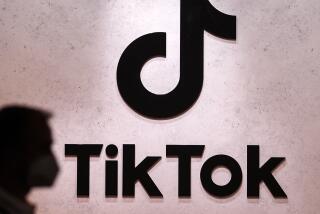CISPA hit with veto threat before Friday vote in the House
WASHINGTON -- The White Houseâs threat to veto the Cyber Intelligence Sharing and Protection Act is prompting more amendments from its supporters as the bill heads toward a planned House vote on Friday.
President Obamaâs senior advisors will recommend he veto the bill if it passes Congress in its current form, the administration said on Wednesday, pointing out that the bill goes too far in releasing companies from liability if their computer networks are not secure and does not include enough oversight to limit how information gathered by the government can be shared. The administration also wants the Department of Homeland Security to be more involved in the procedures outlined in CISPA.
CISPA also would have to pass the Democratic-controlled Senate before it would land on Obamaâs desk.
Reps. Mike Rogers (R-Mich.), and Dutch Ruppersberger (D-Md.), the chairman and ranking member of the House Permanent Select Committee on Intelligence, respectively, quickly responded to the administration.
âThe basis for the administrationâs view is mostly based on the lack of critical infrastructure regulation, something outside of our jurisdiction,â they said in a joint statement, referencing their inability to regulate power supplies, transportation, natural resource production and the like. âWe would also draw the White Houseâs attention to the substantial package of privacy and civil liberties improvements announced yesterday which will be added to the bill on the floor.â
That package, unveiled during a conference call Tuesday, is largely focused on tightening what the government can do with the information it obtains through CISPA. Previously, the government was able to use information obtained for non-regulatory, cyber security and national security purposes, but each had its own slightly amorphous definition.
Under a new amendment, the federal authority to gather information would be limited to the following: For cyber-security purposes, to investigate and prosecute cyber-security crimes, to protect individuals from death or harm and to protect minors from child pornography or any other action taken to harm them and national security.
Included in the package of amendments is an additional stipulation that none of the new responsibilities enacted by CISPA will provide greater authority and permissions to anyone within the government or private sectors.
Rogers and Ruppersberger also submitted a late amendment to ensure that any information required to be given to the federal government would fall under the purview of the Freedom of Information Act.
The Center for Democracy & Technology, which had previously been in opposition to the bill, was sufficiently pleased by the changes brought by the new amendments. In a release, the group acknowledged that âthe bill falls short because of the remaining concerns â the flow of Internet data directly to the NSA and the use of information for purposes unrelated to cybersecurity,â but said it would drop its opposition to the bill as it moves through the House.
Other organizations, including the ACLU and Electronic Frontier Foundation, remain opposed, with ACLU legislative council Michelle Richardsonâs previously mentioned points of contention still standing, and the EFFâs Trevor Timm detailing the extent of the concern over the National Security Agencyâs potential involvement in acquiring and examining private information.
Further proposed changes to the bill, including amendments from Rep. Bennie Thompson (D-Miss.), ranking member of the Committee on Homeland Security, and Rep. Jan Schakowsky (D-Ill.) to address the involvement of the NSA; along with Rep. Adam Schiff (D-Burbank) revamping several elements of the bill, detailed earlier by the Times, have been rejected from the debate on the House floor.
A separate cyber security bill in the Senate remains stalled. Supporters of the House proposal have said they hope the Senate will take action on a cyber security package that will lead to a conference committee to work out a compromise. Senate Democrats will no doubt seek changes to win Obamaâs support.
Original source: CISPA hit with veto threat prior to Friday vote in the House
More to Read
Get the L.A. Times Politics newsletter
Deeply reported insights into legislation, politics and policy from Sacramento, Washington and beyond. In your inbox three times per week.
You may occasionally receive promotional content from the Los Angeles Times.










